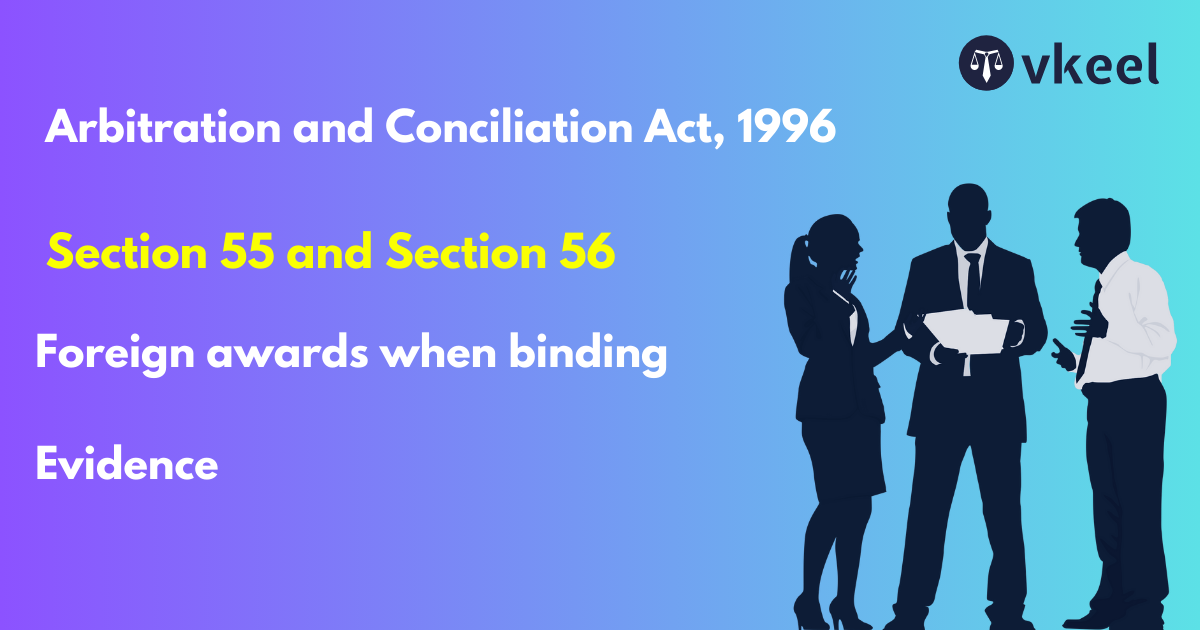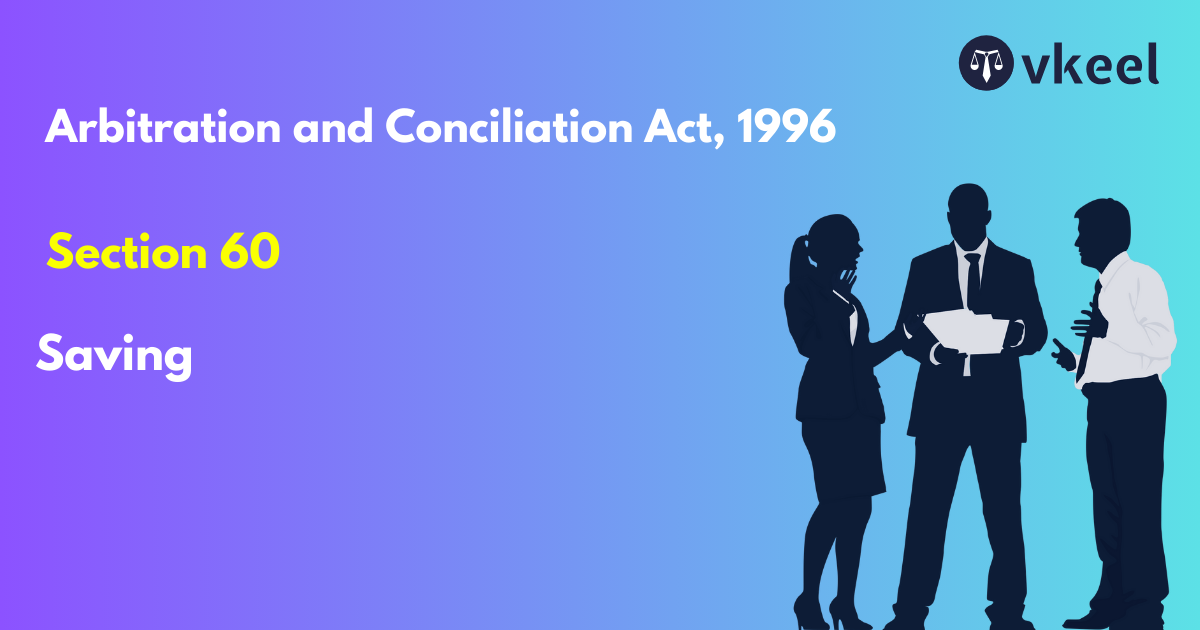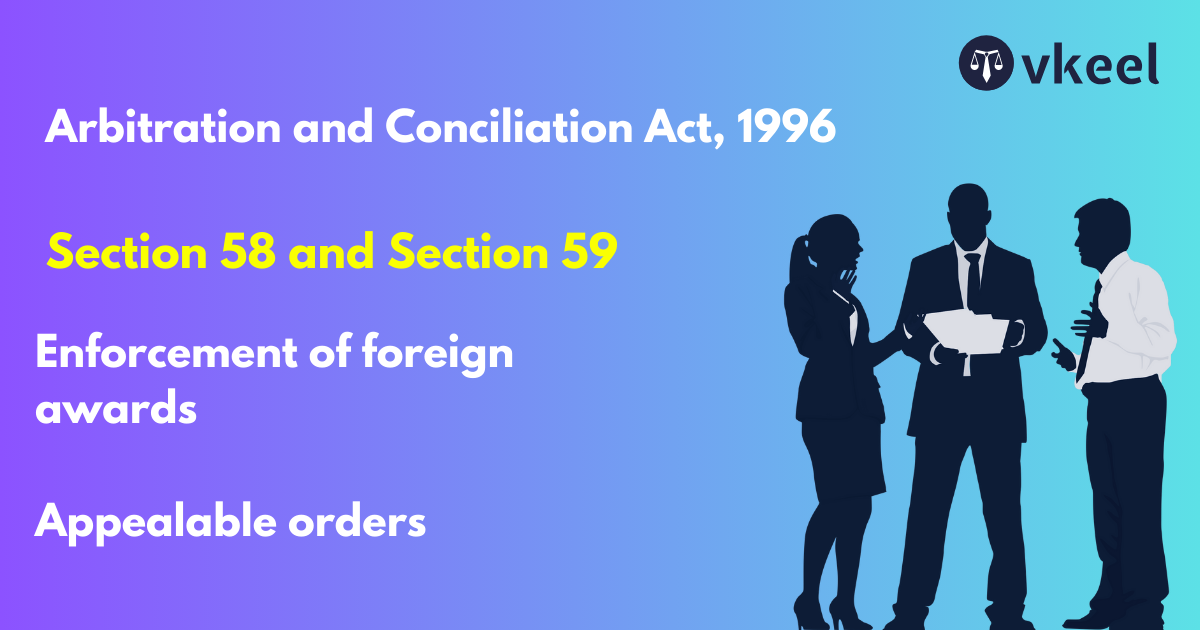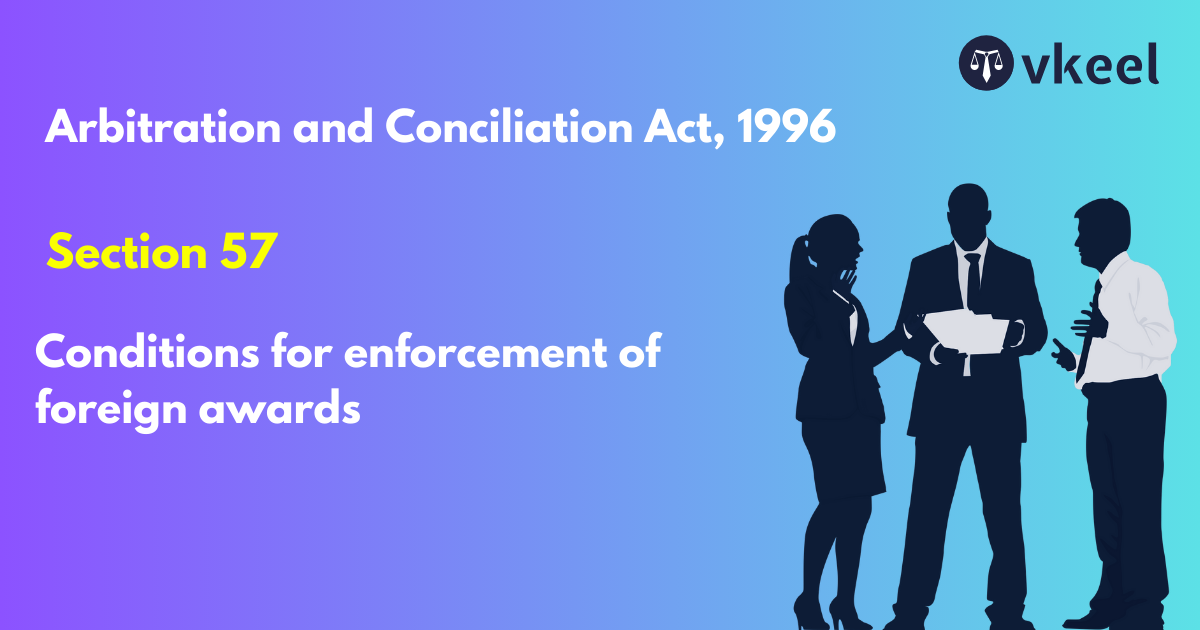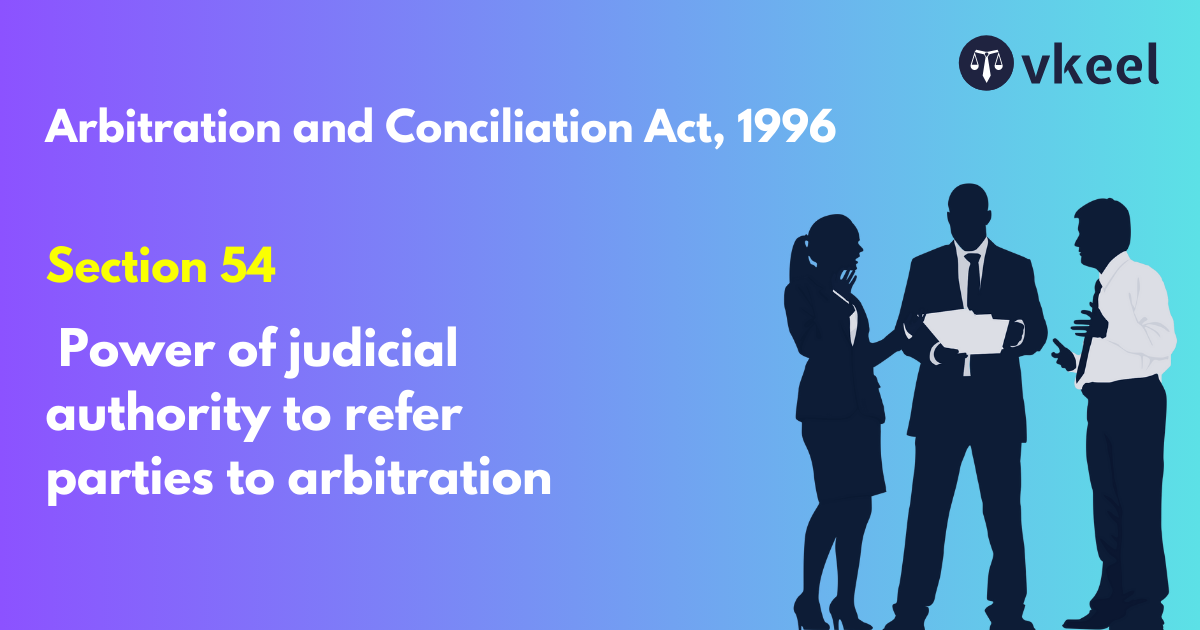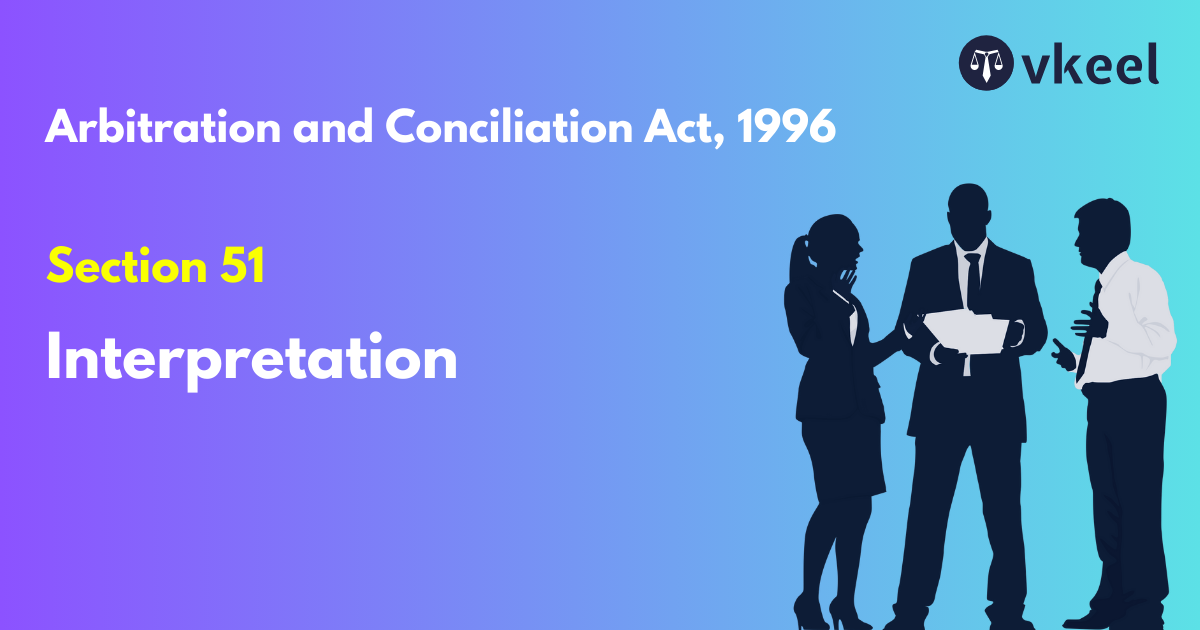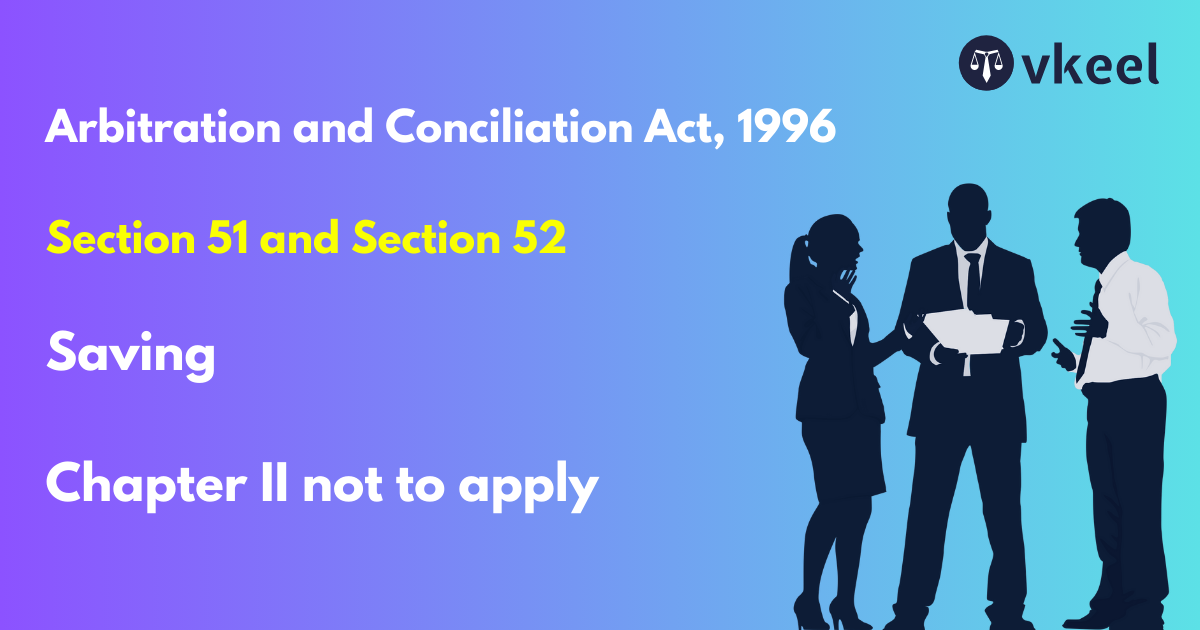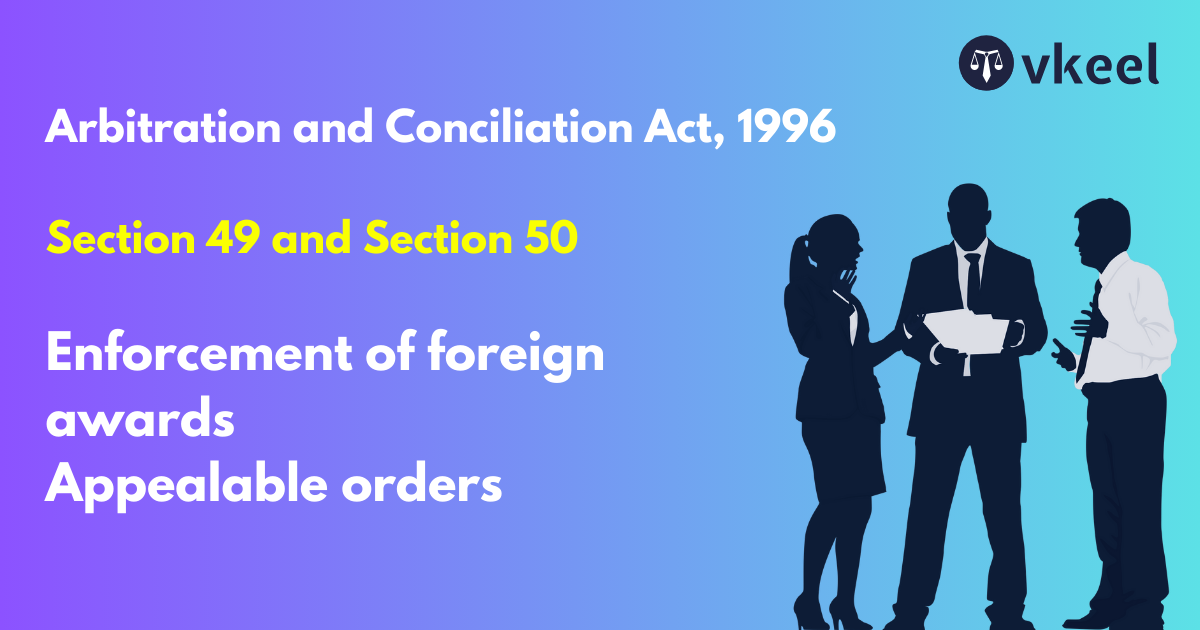Section 55 and Section 56 of Arbitration and Conciliation Act, 1996
By Nivedita Dhiman
Table of Contents
Introduction
Section 55 of the Arbitration and Conciliation Act,1996 deals with the foreign award for the purposes of the Act, which governs the recognition and enforcement of foreign awards. The recognition of foreign awards is majorly based on international treaties and conventions.
Section 56 maintains the integrity of the Indian legal system by recognizing the principle of comity of nations in international arbitration. This also ensures that India remains an attractive jurisdiction for international commercial arbitration.
Section 55 and 56 of arbitration and conciliation act
Section 55-Foreign awards when binding
Any foreign award which would be enforceable under this Chapter shall be treated as binding for all purposes on the persons as between whom it was made, and may accordingly be relied on by any of those persons by way of defence, set off or otherwise in any legal proceedings in India and any references in this Chapter to enforcing a foreign award shall be construed as including references to relying on an award.
Section-Evidence
(1) The party applying for the enforcement of a foreign award shall, at the time of application produce before the Court—
(a) the original award or a copy thereof duly authenticated in the manner required by the law of the country in which it was made;
(b) evidence proving that the award has become final; and
(c) such evidence as may be necessary to prove that the conditions mentioned in clauses (a) and (c) of sub-section (1) of section 57 are satisfied.
(2) Where any document requiring to be produced under sub-section (1) is in a foreign language, the party seeking to enforce the award shall produce a translation into English certified as correct by a diplomatic or consular agent of the country to which that party belongs or certified as correct in such other manner as may be sufficient according to the law in force in India.
1[Explanation.—In this section and in the sections following in this Chapter, “Court” means the High Court having original jurisdiction to decide the questions forming the subject-matter of the arbitral award if the same had been the subject-matter of a suit on its original civil jurisdiction and in other cases, in the High Court having jurisdiction to hear appeals from decrees of courts subordinate to such High Court.]
Landmark Judgements
Mury Exportation vs D Khaitan & Sons Ltd, 1956
The legal effect of an award in a case in which the rights of the parties in law are governed by the protocol act is not affected by the fact that the application for stay was wrongly instituted. Where the arbitration agreement was a valid agreement under the law governing it and the award itself is final in the foreign country in which it was made, it cannot be condemned as bad or invalid merely because the arbitrator in proceeding to make the award contravened the provisions of the act, which act does not apply in the foreign country. The validity of the award cannot be affected by invoking any law of India or the public policy of India.
Lochman Das Sat Lal vs Parmeshri dass, 1958
Although an award made by an arbitrator at Karachi, and signed by him after the partition of India, is a foreign award in India, it is not one which can be enforced in this country under this act. The interested party can, however bring action under the general law.
Conclusion
The above-mentioned section states that the award should be from a jurisdiction where the court or the arbitral tribunal is located outside India. The Indian courts take a restrictive approach towards refusing enforcement and ensures that the foreign awards are enforced in most commercial disputes unless they violate core principles of justice or conflict with Indian laws.
Disclaimer:
The information provided in the article is for general informational purposes only, and is not intended to constitute legal advice or to be relied upon as a substitute for legal advice. Furthermore, any information contained in the article is not guaranteed to be current, complete or accurate. If you require legal advice or representation, you should contact an attorney or law firm directly. We are not responsible for any damages resulting from any reliance on the content of this website.

